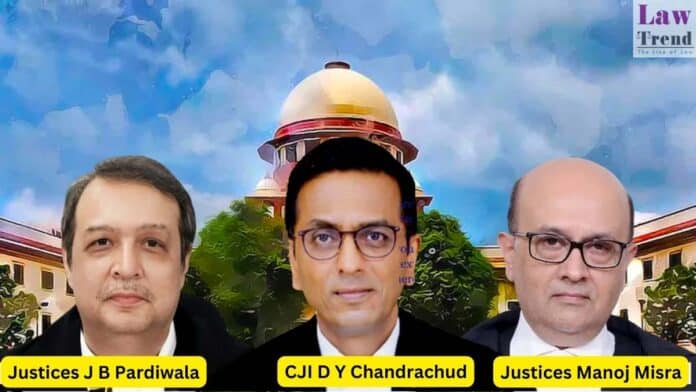In a pivotal ruling, a three-judge bench of the Supreme Court comprising Chief Justice D.Y. Chandrachud, Justice J.B. Pardiwala, and Justice Manoj Misra has held that non-signatories to an arbitration agreement can be compelled to arbitrate if their conduct demonstrates an intention to be bound by the terms of the agreement. The judgment, delivered in
To Read More Please Subscribe to VIP Membership for Unlimited Access to All the Articles, Download Available Copies of Judgments/Order, Acess to Central/State Bare Acts, Advertisement Free Content, Access to More than 4000 Legal Drafts( Readymade Editable Formats of Suits, Petitions, Writs, Legal Notices, Divorce Petitions, 138 Notices, Bail Applications etc.) in Hindi and English.




